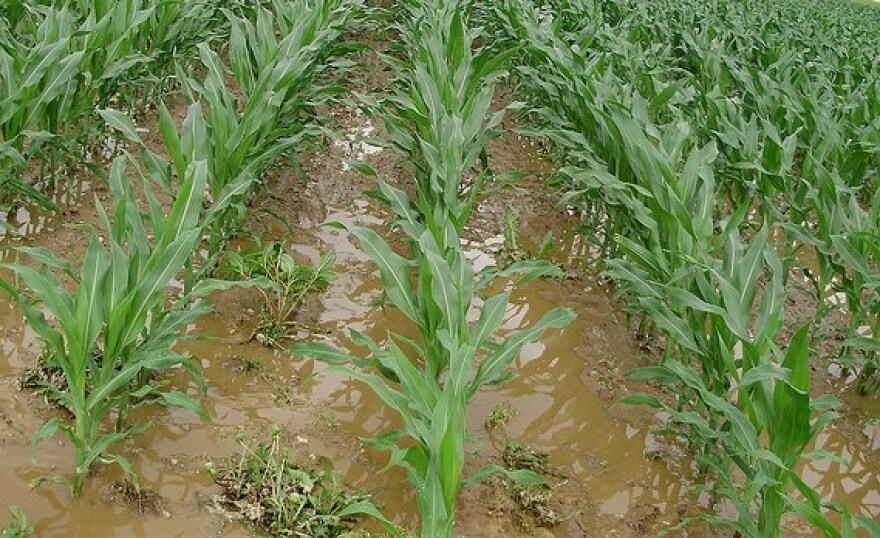Some crops in Illinois are under water. Some have yet to be planted.
After the wettest June on record, officials in Illinois with the U.S. Department of Agriculture announced this week they’re seeking a federal disaster declaration to help farmers with flood-damaged crops.
"This has been the absolute worst spring for getting anything done that I’ve seen in 40 years of farming. It seemed like just as the ground was drying up, it’d rain again," said Greg Guenther, who farms east of Belleville.
Despite that, Guenther said his corn is looking pretty good. His soybeans are a different story.
"All of my beans are behind schedule by about a month," he said. "So they are vulnerable right now to extreme heat or drought conditions that may pop up in the eight to 10 weeks here."
Paul Yoder is hearing similar things from farmers across the state. The senior director of affiliate and risk management at the Illinois Farm Bureau said soybeans get planted later than corn and there weren’t many dry days in May or June.
"We had a lot of areas that just could not get the beans planted, or they had them planted and replanted and replanted again, and they still aren’t off to a good start," he said.
The USDA's field report for this week found that more than half of Illinois' soybeans were in poor to fair condition. Corn is doing slightly better, with 55 percent listed as good or excellent.
Yoder said the corn crop is still going to be hit and miss.
"I think we’ll have some very good pockets," he said. "And we’ll have some pockets that have nothing at all in them, just simply because they’ve been washed out completely and there’s nothing left there."
The weather next month is critical for both crops.
Experts say corn plants didn’t put down deep roots because of all the rain early in the season. Now they’ll need some rain to keep the plants healthy.
Soybeans will need moisture to help flower and grow their pods.
"It’s really the rain in August that makes the bean crop, and if it turns hot and dry on us, there’s not going to be much of a bean crop," Guenther said.
Follow Maria on Twitter: @radioaltman




